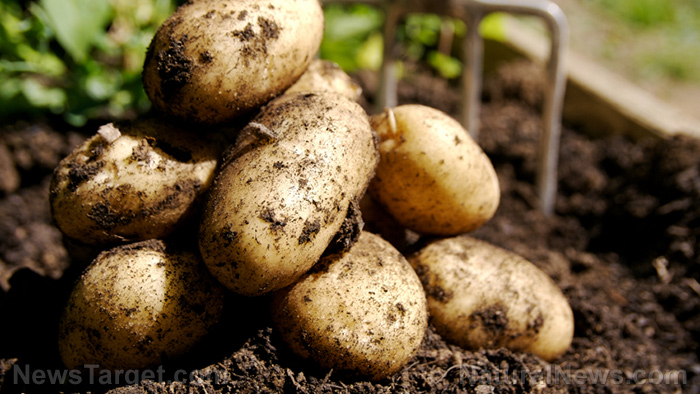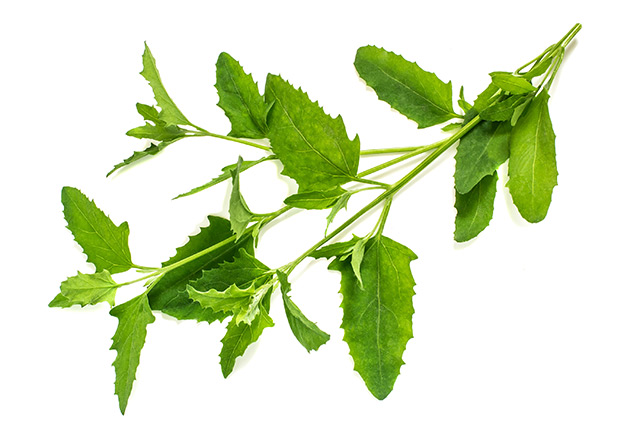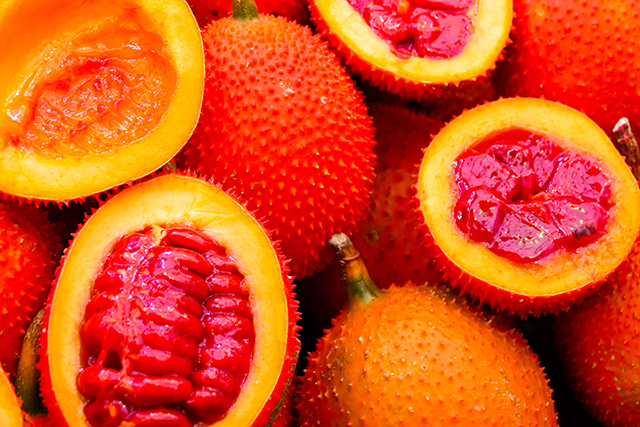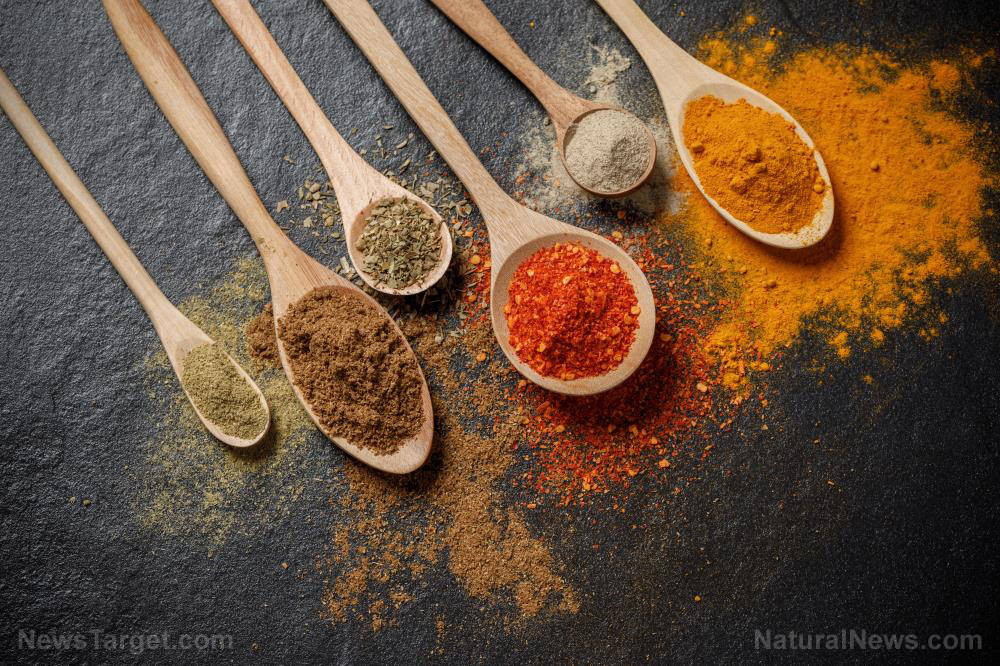Delicious and nutritious: Detox and lose weight with these 10 anti-inflammatory vegetables
05/06/2019 / By Zoey Sky

You need to eat a lot of fresh vegetables if you want to maintain your physical and mental health. But did you know that certain vegetables can help you detox, promote weight loss, and relieve inflammation?
Not all vegetables offer the same health benefits, but some of them can boost your overall health and help you lose weight. According to Jessica Cording, a registered dietitian and health coach, it’s good to consume a variety of vegetables to ensure that you cover more bases nutritionally.
Organic vegetables also contain at least 20 to 40 percent more antioxidants than their conventionally grown counterparts. To ensure that you’re purchasing fresh and GMO-free produce, shop at a farmer’s market or food co-op.
The 10 vegetables included in the list below were selected based on their nutrient profile and current study findings. Eat these vegetables to address inflammation, detox your body, and lose weight.
Asparagus
Asparagus can make urine smell strange, but this vegetable is full of folate, selenium, B vitamins (e.g., riboflavin and thiamine), and vitamin K. It can also help support the liver’s natural detoxification process.
Asparagus is one of the few dietary sources of glutathione, an antioxidant concentrated in the liver. Glutathione helps bind and eliminate toxins through urine or bile. Consume foods rich in glutathione to maintain energy, minimize muscle pain, improve sleep quality, and strengthen your immune system.
Other foods that contain glutathione include avocado, bananas, cumin, grapefruit, onions, peppers, and raw spinach.
Broccoli and broccoli sprouts
Broccoli is a cruciferous vegetable full of antioxidants that can help prevent cancer. Cruciferous vegetables have sulfur-containing phytochemicals called glucosinolates and sulforaphane.
Glucosinolates are anti-inflammatory, and they can help the body eliminate toxins.
According to a study, the overall intake of cruciferous vegetables is linked to a reduced risk of different types of cancer. In a separate study, researchers found that a drink made with broccoli sprouts could activate enzymes in the body that gather pollutants from the bloodstream and flush them out via urine.
Brussels sprouts
Another type of cruciferous vegetable, Brussels sprouts offer many of the same benefits as broccoli. In addition, they also have kaempferol, an antioxidant that helps counteract cell damage that may cause cancer.
Brussels sprouts are rich in vitamins A, C, and K. They also contain fiber and minerals, along with folate and potassium. Eat Brussels sprouts to boost your overall immunity as well as your blood and bone health.
Brussels sprouts are also one of the best vegetables for weight loss and management. Brussels sprouts help you feel full, and they contain three grams of fiber and protein.
Butternut squash
Butternut squash is a healthy substitute for sweet potatoes as it contains the same nutrients. This vegetable is full of fiber, which makes it the perfect food to eat if you want to lose weight and boost your digestive health.
Studies reveal that butternut squash contains beta-carotene, an antioxidant plant pigment that can strengthen your immune system and help lower the risk of cancer. The vegetable is also full of magnesium and potassium, making it the ideal choice for maintaining healthy blood pressure and blood sugar, as well as a stable mood.
Chili and cayenne peppers
Chili peppers have capsaicin, a compound that offers many health benefits. It can mildly increase metabolic rate, lower blood pressure, and protect against certain types of cancer.
Capsaicin is also a potent antioxidant. According to some studies, capsaicin can kill prostate cancer cells.
Dark leafy greens
Dark leafy greens like arugula, kale, mustard greens, spinach, and Swiss chard are full of antioxidants like carotenoids that help curb the growth of various cancers. These antioxidants also boost eye and skin health and minimize inflammation.
Garlic
Garlic is good for your heart. It can also lower your risk of cancer and boost your immune system.
Garlic belongs to the allium vegetable family, which also includes onions and scallions. Alliums contain health-boosting organosulfur compounds, such as allicin and diallyl sulfides.
Garlic is a natural antimicrobial, and its organosulfur content is responsible for its ability to reduce cancer risk, cholesterol levels, and oxidative stress. Organosulfur compounds also reduce blood pressure and protect against stroke and heart disease.
Red cabbage
Another cruciferous vegetable, red (or purple) cabbage is full of fiber, vitamin C, and pigments called anthocyanins.
Anthocyanins are a type of flavonoid antioxidant, and they are found in various foods and plants that are blue, dark red, or purple in color. These pigments have potent anti-inflammatory properties and help boost heart and brain health. (Related: Eating more fruits and vegetables can protect against systemic inflammation, according to study.)
Red onion
Red onions contain prebiotic fibers that nourish probiotic bacteria in the gut. They’re also full of quercetin, a flavonoid antioxidant that also functions as a natural antihistamine.
Sea vegetables
Seaweed (e.g., kelp, nori, or wakame) and other sea vegetables like chlorella (a type of algae) are some of the most nutrient-dense foods. Nutritious seaweed contains different vitamins, minerals, and antioxidants, some of which are hard to find in other foods.
Sea vegetables contain iodine that helps regulate thyroid hormones. Consume sea vegetables in moderation since too much iodine may negatively affect thyroid health.
Eat these nutritious vegetables if you’re going on a detox diet. These vegetables can also promote weight loss and ease inflammation.
Sources include:
Tagged Under: #nutrition, alternative medicine, anti-inflammatory, antioxidant, bone health, clean food, dark leafy greens, detox, diet, digestive health, flavonoids, food cures, food is medicine, food safety, functional food, heart health, immune system, inflammation, minerals, natural cures, natural healing, natural medicine, natural remedies, nutrients, nutritious foods, phytochemicals, prevention, proper nutrition, vegetables, Veggies, vitamins, weight loss



















